#who in effect stage coups over Who's In Control Of Edward
Explore tagged Tumblr posts
Text
it really is fascinating to me that essentially the only successful rebellion in the tudor era is pulled off by mary tudor
#🗡️#although i think there's something to be said#for the dukes of somerset and northumberland#who in effect stage coups over Who's In Control Of Edward#without really staging coups over the monarchy itself#(somerset tries to kidnap edward and it is notoriously unsuccessful)#you could also put henry vii as the other successful rebellion of the tudor era#but then you're left with only the tudors managing to upstage the tudors lmao
8 notes
·
View notes
Text
First Reformed (2018)
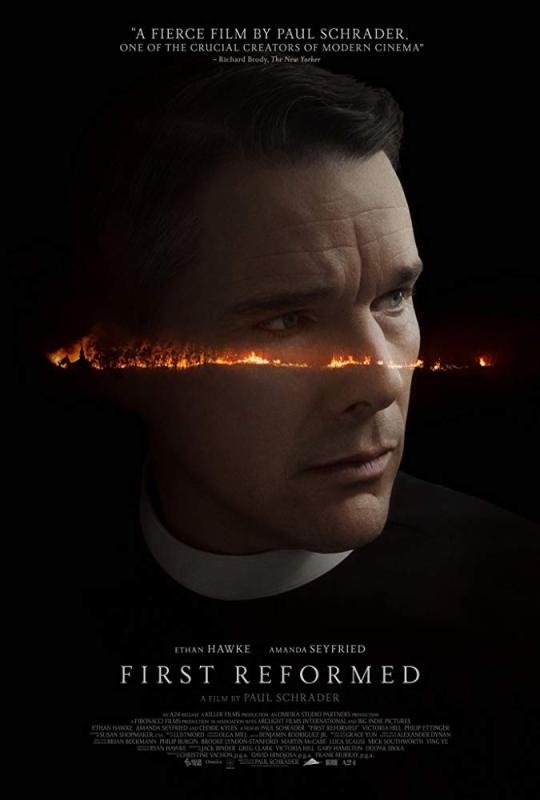
Directed by Paul Schrader
Written by Paul Schrader
Music by Lustmord
Country: United States
Language: English
Running Time: 113 minutes
CAST
Ethan Hawke as Pastor Ernst Toller
Amanda Seyfried as Mary Mensana
Cedric Kyles as Pastor Joel Jeffers
Victoria Hill as Esther
Philip Ettinger as Michael Mensana
Michael Gaston as Edward Balq
Bill Hoag as John Elder
(Confession: All images stolen from the Internet. We’re all going to hell anyway.)
In which Paul Schrader, a man whose last movie I bought from a pound shop makes a movie with goofy Ethan Hawke as a sad vicar and…it’s my favourite movie of 2018? Damn straight it is, Poncho. In First Reformed Paul Schrader creates a gloriously stark and sedately paced meditation on the question, how can we survive in the face of despair?
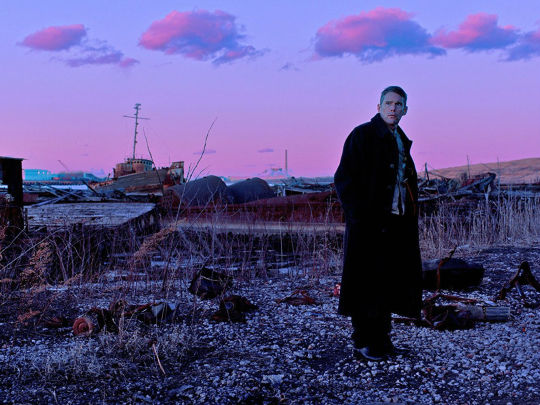
First of all, the Ethan in the room. Ethan Hawke. He’s okay, right? Never a chore to watch, but hardly a heavy hitter. A pleasant enough addition to any cast. Well, that was before First Reformed. First Reformed is movie about revelation and Ethan Hawke’s Ernst Toller(1) surely is a revelation. Toller, predictably enough, is the umpteenth iteration of Schrader’s evolving portrait of (Thomas Mann’s) God’s Lonely Man, and, like the Whitman said, he is large, he contains multitudes; he is the refined essence of all the God’s Lonely Men who came before him. Given Hawke’s predecessors in this ever mutating role include such titans of thesping as Robert De Niro, Willem Dafoe, George C. Scott and Richard Gere, the fact that his (Ethan Hawke’s!) performance can lounge comfortably amongst them is perhaps the biggest surprise in First Reformed. Appropriately enough, watching Hawke as Toller you will feel the scales fall from your eyes; Ethan Hawke (Ethan Hawke!) is not a lightweight screen presence, he is, in fact, an actor of the top tier. It helps that in First Reformed he’s given top tier material by a true auteur going at it like he’ll never get to go at it again. First Reformed is Schrader at the top of his mature game, exerting an iron control over material driven by an icy rage. And Hawke (Ethan Hawke!) is more than equal to the task. The boy done good.
1) A toller is defined as “a person who rings church bells (as for summoning the congregation) bell ringer, ringer. signaler, signaller - someone who communicates by signals.” There is some irony here as Toller’s congregation is small, but he definitely communicates via signals, particularly so at the close of the movie. Oh yes, particularly then.)
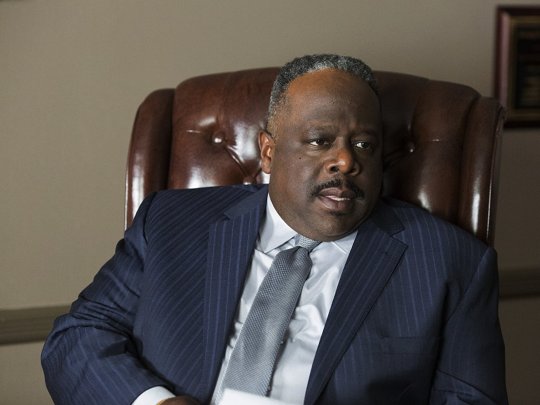
Everyone else has to act in Hawke’s daunting shadow, so it is absolutely to their credit that they still shine so brightly, so fiercely. I doubt many people other than his immediate family thought that Cedric the Entertainer could portray such a smoothly venal and slyly manipulative Pastor, while still appearing wholly human and relatable. (Mind you, Brummy funnyman Lenny Henry made a creditable Othello, so who the hell knows?) Michael Gaston is great as Edward Balq (2), the bad businessman who ambushes Toller over apple pie and thinks maybe it’s God’s plan to fuck up the world for cash. And he’s no one dimensional greedy meanie either, he is part of Schrader’s dramatisation of humanity’s struggle with The Bible’s (typically) contradictory command to both tame the world and also to preserve it. The abysmal weight of the latter burden falls on Philip Ettinger, as Michael Mensana (3). Ettinger is worryingly convincing as a man who clearly can no longer control his own mind. This tortured soul is desperately using his last scraps of rapidly fleeing reason to prevent himself from doing an unforgivable thing; either via the humane intervention of Toller or via other, more drastic measures. Amanda Seyfried is harrowingly vulnerable as Michael’s wife, Mary Mensana (4), but she also brings the core of steel essential for survival in the fallen world, a core which her husband, Michael, fatally lacks.
2) “Balq” is a phonetic ringer for “balk” i.e. to hesitate or be unwilling to accept an idea or undertaking.
3) Mensana alludes to “mens sana”, the Latin for “healthy mind”; it is used ironically for Michael. His mind is unhealthy.
4) Mens sana is used literally in the case of Mary. She also deserves its use in the wider sense; Mary embodies Juvenal’s phrase “mens sana in corpore sano”. She is “a healthy mind in a healthy body”. Her pregnancy is a sign of health and hope. Also, she’s called “Mary” and is pregnant in a movie thrumming with religious tones both over and under; I don’t think we need Sherlock Holmes to puzzle that one out for us.
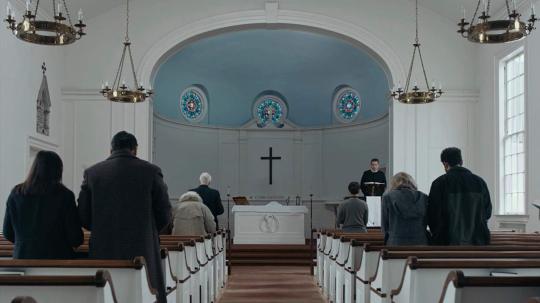
Things are being said in First Reformed. Things weightier than “Tom Cruise can save the world without chipping a nail” or “uptight businesswomen need to unclench so wacky men can love them”. All true and valuable lessons, no doubt, but they aren’t what’s being said in First Reformed. Of course, something is usually being said in a Paul Schrader movie. That’s the way Paul Schrader rolls; like the thunder. Paul Schrader has been knocking about movies for what, five decades now? Since 1974 anyway, when The Yakuza was filmed by Sydney Pollack from a script by Schrader and his brother, Leonard. It was a good start; an entertaining geriatric action movie, involving an aged Robert Mitchum steamrollering his way through the Yakuza, while delicately pining for his war-time love. A little bit of playing in the Hitchcock sandbox aside (Obsession, Dir. Brian De Palma, 1979), this potent fuel of meditative violence would form the core of Schrader’s early offerings, with Rolling Thunder (dir. John Flynn, 1977) and, particularly, Taxi Driver (Dir. Martin Scorsese, 1976) refining the approach. Movies like Blue Collar (1978) and Hardcore (1979) also displayed Schrader’s interest in alienation, guilt, dehumanisation, guilt, sexuality and spiritual inquiry. And guilt. Sure, such themes were certainly less immediately arresting than hook handed ‘Nam vets and tonto taxi drivers, but with American Gigolo (1980) Schrader successfully intertwined all his major themes, high and low, into his first critical and commercial career maker of a knockout. That same year saw the release of the Schrader scripted Raging Bull (dir. Martin Scorsese). Top o’ the world, ma, in effect.
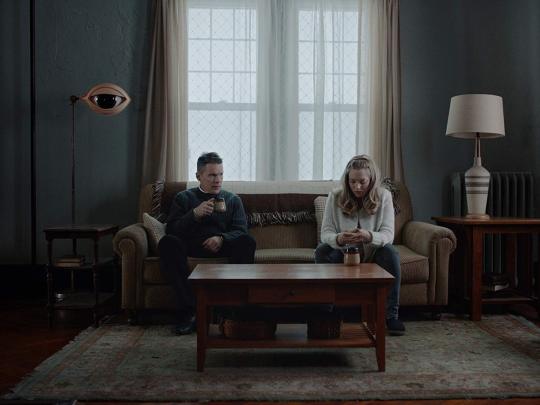
There then followed the ‘80s and, for Schrader, what appeared to be a “kid in a candy store” phase. (Legal note: no one said “nose candy”) Given the freedom Hollywood success bestows, Schrader indulged his more personal fascinations via his own scripts and those of others. Schrader having more going on upstairs than most in La La Land, this led to mixed results; his study of the celebrated Japanese author and coup instigator Mishima: A Life in Four Chapters (1985) clearly being of more artistic value than his study of Nastassja Kinski’s bare arse in his remake of Cat People (1982). But I have watched the latter far more than the former, so who am I to judge? Somewhere in this wayward and invigoratingly fun period is a movie about kidnapped heiress Patty Hearst (1988) and an adaptation of Paul Theroux’s Mosquito Coast (Dir. Peter Weir, 1986). And I’m pretty sure few filmographies contain a musical starring Michael J. Fox and Joan Jett (Light of Day, 1987) and a Jesus movie which managed to upset various touchy Christian groups, including that of his own father (The Last Temptation of Christ, Dir. Martin Scorsese, 1988). A real cinematic fruit basket; lots of fun, something for everyone.
But after the party comes the hangover, alas, and the early ‘90s for our fascinating firebrand seemed somewhat listless and directionless. At best. Schrader working with Harold Pinter sounds dauntingly awesome, especially with Christopher Walken and Helen Mirren on board, but the result was a stodgy Europudding adaptation of Ian McEwan’s The Comfort of Strangers (1990). (Walken is amazing in it though, true.) Then in 1992 there came Light Sleeper, a perfectly fine movie, a pretty damn good movie in fact; if you ignore that it’s basically American Gigolo for drug dealers, with a soupcon of a last act shootout for Taxi Driver/Rolling Thunder flavour. It’s probably Schrader’s best ‘90s movie because it magpies from all his earlier, good movies. A TV movie starring Dennis Hopper which used fear of witchcraft as a metaphor for the ‘50s Communist scare (Witch Hunt, 1994) sounds…interesting. (I haven’t seen it.) And the lean period sputtered out with a script contribution to City Hall (Dir. Harold Becker, 1996), a movie which despite a class pedigree stubbornly refused to ignite. No period in Schrader’s filmography is a total loss, but there was a clear lack of artistic traction in those six years.
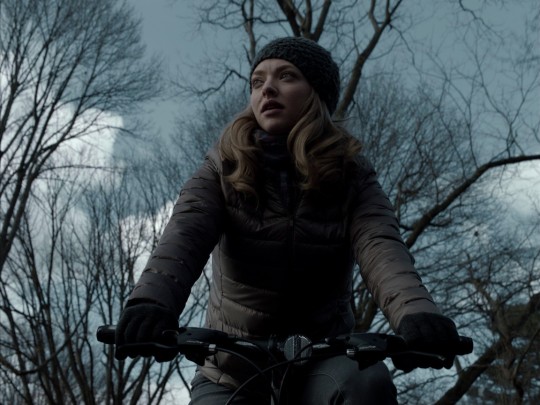
Maybe even Schrader noticed, because in 1997 his work flowered anew with the release of both Touch and Affliction. As if invigorated by the source works, Schrader produced one of the best ever Elmore Leonard adaptations (an even greater achievement given the atypical nature of Touch. Christopher Walken is excellent in it, obviously), and an appropriately despairing staging of Russel Banks’ grim novel of dysfunctional families and DIY dentistry. As to the latter it would be lax to fail to state how incredible James Coburn is as The Awful Father. I’ve never seen Forever Mine (1999), so for me Schrader’s ‘90s closed on a high with the adaptation of Joe Connelly’s Bringing Out the Dead (Dir. Martin Scorsese, 1999). A fine high-octane night-in-the-life-of-a-paramedic parable featuring a lively cast kicking out the jams; all led by a truly great Nicolas Cage before his fall, before his face started adorning novelty sequin cushions.

In 2002, with Autofocus (from Robert Graysmith's book “The Murder of Bob Crane”) Schrader went back to the well of morality and debauchery he had been lightly dipping into throughout his career, and this time chucked the bucket in further than he had since Hardcore, drawing up a weighty, but darkly comic, look at the corrupting influence of images. Pretty ballsy for a man who trades in the things. It was a great start to the 2000s, so obviously it immediately turned to shit. So shit in fact most of the movies from this period appeared without my noticing, were difficult to source, or were disowned by Schrader himself. Not exactly Paul Schrader: The Glory Years. A 2005 Exorcist prequel was yanked off him by the studio and re-edited and re-shot under Renny Harlin. The Walker (2007), was really good with Woody Harrelson as a gay “professional companion” to older women accidentally uncovering Washington corruption; a kind of Light Sleeper for gay consorts. A really good movie, but nobody noticed. In 2008 Adam Resurrected occurred without my noticing, as did The Canyons (2013). In 2014 I did notice The Dying of the Light was taken off Schrader and re-edited by the studio so, without wishing to cause offence: **** that one. And this is where we came in...last year I picked up Dog Eat Dog (2016) on Blu-Ray in a Pound Shop; it was…very energetic, very hectic; a post fall Nic Cage and a never-even-stumbled-once Willem Dafoe were obviously having fun. I kind of dug it in a weird way, but Schrader definitely looked like his best days were behind him. Then I heard he was doing a movie with Ethan ****ing Hawke as a sad vicar or something. Hoo boy.
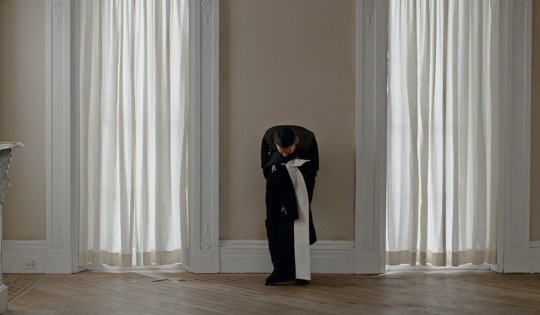
HOO BOY! indeed. Cover my face with egg and fry it in a pan! Yeah, Paul Schrader made a movie with Ethan Hawke as a sad vicar or something, and it was one of The 3 Movies I Loved in 2018. (The others, obviously, being Mandy and Let The Corpses Tan. I’m sure everyone agrees.) Schrader, the wily bugger had just been playing possum; letting his energies build, fermenting his themes, you know, getting ready to put out some fires with gasoline, as someone sang over the credits to one of his movies once. Filmed in the hypnotically discreet Transcendental Style so dear to his heart First Reformed is the “Paul Schrader movie” par excellence. It’s all been building to this one, kids!
First Reformed is a heartbreaker, a goddamn beautiful heartbreaker of a thing, it moves soft as a breeze and punches you in the heart like LaMotta on meth. The everyday becomes numinously stunning under Schrader’s soporific direction; the mundane is exalted; an indefinable mysticism hums through every scene; every performance is pregnant with the preternatural. Schrader lays his transcendental groundwork so well that when the movie makes a late lurch into magical realism it doesn’t jar, it just feels right; no, it just feels perfect. In First Reformed, terrible, terrible feelings are going on behind ordinary people’s faces; terrible, terrible feelings Schrader’s camera miraculously, tenderly, delicately captures like snow settling on an outstretched tongue. So, no, slow cinema doesn’t have to be boring cinema; only bad cinema is boring cinema. And First Reformed is good cinema. First Reformed is great cinema. First Reformed is Paul Schrader taking back the crown. Turns out everyone else was just keeping it warm.
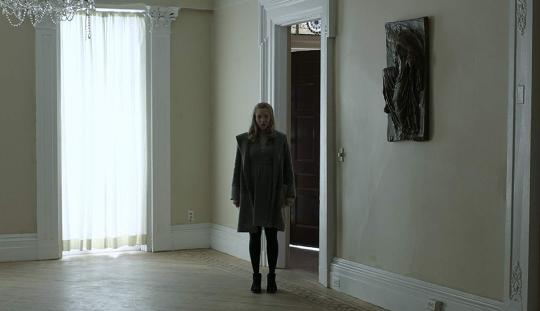
#first reformed#movies#drama#transcendental cinema#paul schrader#ethan hawke#2018#the 2010s#favourite movie of 2018#nic cage sequin cushions#united states#cedric the entertainer#amanda seyfried#cedric kyles#philip ettinger#michael gaston
5 notes
·
View notes
Photo
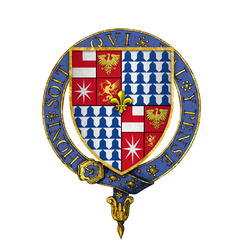
Today in history, July 28, 1488: the death of Sir Edward Woodville:
"Sir Edward Woodville KG (died 1488) was a member of the Woodville family during the Wars of the Roses. He survived the reign of Richard III in which several of his relatives were executed in a power struggle after the death of Edward IV. Exiled with Henry Tudor, he participated in Henry's capture of the throne. He was then appointed Lord of the Isle of Wight, the last person to be given that title.
An enthusiastic soldier, he has been called "the last knight errant" because of his devotion to the chivalrous ideal. Involved in many military adventures, he was finally killed in an ill-fated personal expedition to Brittany in support of Francis II, Duke of Brittany.
Woodville was referred to as Lord Scales after the death of his brother Anthony Woodville, 2nd Earl Rivers, who bequeathed the Scales lands to him. He is consistently referred to as Lord Scales in Spanish and Breton records, but he never officially held the baronial title.
Edward was the tenth child, and youngest son, of Richard Woodville, 1st Earl Rivers and Jacquetta of Luxembourg, who came to prominence when their daughter Elizabeth Woodville married King Edward IV. During the reign of his sister's husband, young Edward Woodville was among those who allegedly encouraged the king's licentious lifestyle as "promoters and companions of his vices", in the words of the Italian courtier Dominic Mancini.
In 1472 he accompanied his brother, Anthony Woodville, 2nd Earl Rivers, to Brittany. Francis II, Duke of Brittany had appealed to Edward IV for support against the French, who were threatening invasion. The king sent 1000 archers with the Woodvilles. Determined Anglo-Breton resistance forced the French to withdraw. In 1475, Edward IV made him one of the Knights of the Bath. In 1480 Edward was granted control of the town of Portsmouth and the stronghold of Porchester Castle.
In 1482, he joined the king's brother Richard, Duke of Gloucester in his invasion of Scotland. Richard made him a knight banneret on 24 July 1482. The following year, he was commissioned to prepare an expeditionary force to be sent to France, but the king's sudden death halted this project.
After the death of King Edward there was a power-struggle between the Woodvilles and Richard Duke of Gloucester, who had been appointed as Protector of the under-age heir Edward V. The Woodvilles were keen to bypass the protectorate and have Prince Edward crowned quickly. They attempted to outmanoeuvre Richard by placing their large family in positions of power. They convinced the royal council to appoint Edward Woodville as admiral of a fleet, supposedly to deal with the French naval commander Philippe de Crèvecoeur, who was attacking English ships in the channel.
He seems to have left London to take command of the fleet shortly after Richard initiated his coup by arresting Edward's brother Anthony Woodville, 2nd Earl Rivers, at Stony Stratford. Apparently as-yet unaware of this development, Edward then sailed with his fleet in April. Richard quickly moved to place his supporters in control of key posts in Edward's power-base at the Isle of Wight and Porchester. By mid-May he sought to capture his fleet. Woodville was at Southampton, having just confiscated a large sum in gold coins (allegedly belonging to the king) from a merchant ship, when he was made aware of the situation. Most of his fleet surrendered to Richard, but Woodville escaped with two ships and, probably, the money. He and his men then joined Henry Tudor in exile in Brittany, where he seems to have received a monthly allowance from the Duke. Richard executed Anthony Woodville and proclaimed himself king. He made a number of attempts to extradite the Tudor faction, but the Duke resisted the pressure.
Edward returned to England with Henry in 1485 and fought at the Battle of Bosworth. Under Henry VII he was appointed as Lord of the Isle of Wight in the first year of the new king's reign. He was also given command of Porchester Castle again, along with Carisbrooke Castle.
By this time he was being called "Lord Scales", coming from his brother's wife, Elizabeth de Scales, whose lands had been bequeathed to him, but which he never seems to have received.
In 1486 Edward went to Spain to join with Ferdinand and Isabella in the attempt to expel the Moors and unify Spain, possibly to fulfil a vow he had made that he would participate in a crusade. He fought at the siege of Loja, where he helped to defeat the Moorish forces by leading an attack to scale the city walls. In the fight, Edward was hit in the face by a rock thrown by a defender. He was knocked unconscious and his front teeth were smashed, a disfigurement he considered a badge of honour. He was visited in hospital by the king and queen, who sympathised with him over the loss of his teeth. According to the chronicler Andrés Bernáldes he replied, "Our Lord, who reared this fabric, has only opened a window to discern more readily what lies within".
In the following year, back in England, he played an important role in defeating the rebellion of Lambert Simnel, when he was placed in command of the light cavalry, sent north to make first contact with the rebels. His forces repeatedly harassed the rebel army in a series of skirmishes in Sherwood Forest, forcing it to slow down and giving the king time to build up his army before the main battle. He seems to have intentionally adopted the "Moorish hit-and-run tactics" of the kind he'd seen used effectively in Spain. His cavalry joined the main royal army before the decisive Battle of Stoke, forming its right wing. In the following year he was made a Knight of the Garter.
In 1488 the Duke of Brittany appealed to Henry for help when he was once more threatened with invasion by France. Henry attempted to negotiate a settlement, but the French decided to invade. Edward asked Henry to allow him to raise a force to support the Bretons. Henry was unwilling to commit to this, and so Edward collected men from the Isle of Wight on his own authority. He managed to gather a small force of between 400 and 700 archers along with 40 of the local gentry. He sailed to Saint-Malo, plundering a French ship on the way.
The Bretons decided to make the English force seem larger by dressing 1,300 of their own men in English colours, possibly to frighten the French with the fearsome reputation of the English longbowmen. At the Battle of Saint-Aubin-du-Cormier (1488) Edward's force formed the vanguard of the Breton army. He led a bold attack on the French in the opening stages of the battle, but a French counter-attack on the weak Breton centre broke their position and the Bretons were defeated. Lord Scales' force was almost completely wiped out. Supposedly there was one survivor, a boy called Diccon Clarke, who returned to the Isle of Wight to tell the tale. Edward was killed with his men, apparently after he had refused to surrender for ransom.
He was buried in Brittany. In 1988 a monument was erected by Breton nationalists at the site of the battle, which commemorates the English forces, but erroneously refers to their leader as "Talbot Earl of Scales". In 2009 English Heritage put up a memorial plaque to him at Carisbrooke castle.
Sir Edward's biographer Christopher Wilkins calls him "a true hero whose significance in the politics of the period is often overlooked", describing him as an "essentially Medieval" figure, whose actions in Spain, England and France helped form, sometimes contrary to his intentions, modern nation-states."
#the queue is dead long live the queue#today in history#On This Day in History#edward woodville#sir Edward woodville#death
10 notes
·
View notes